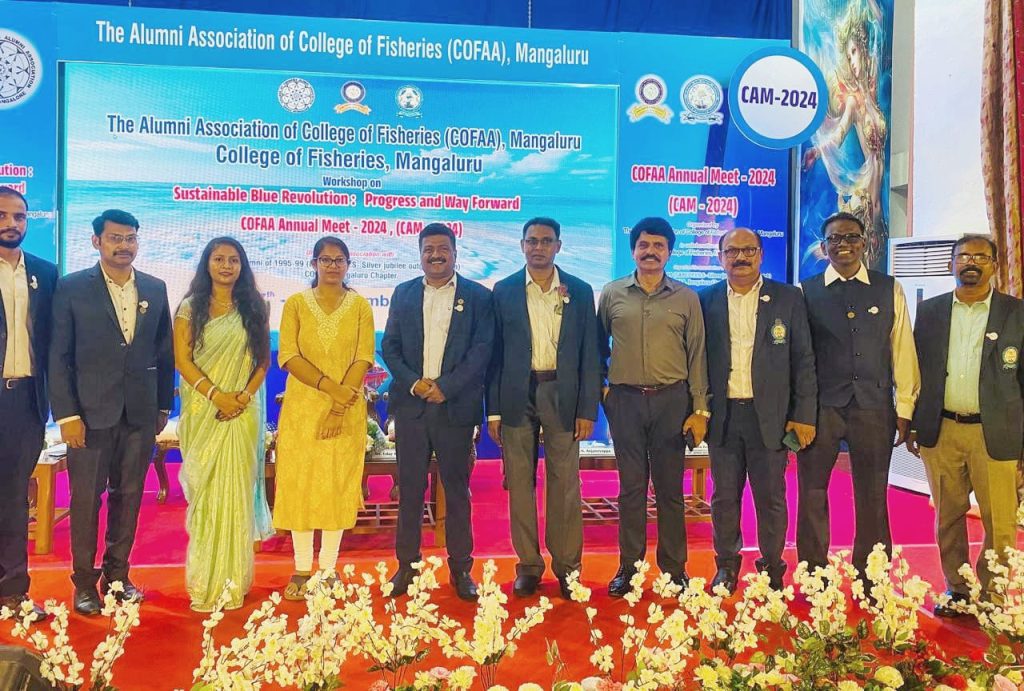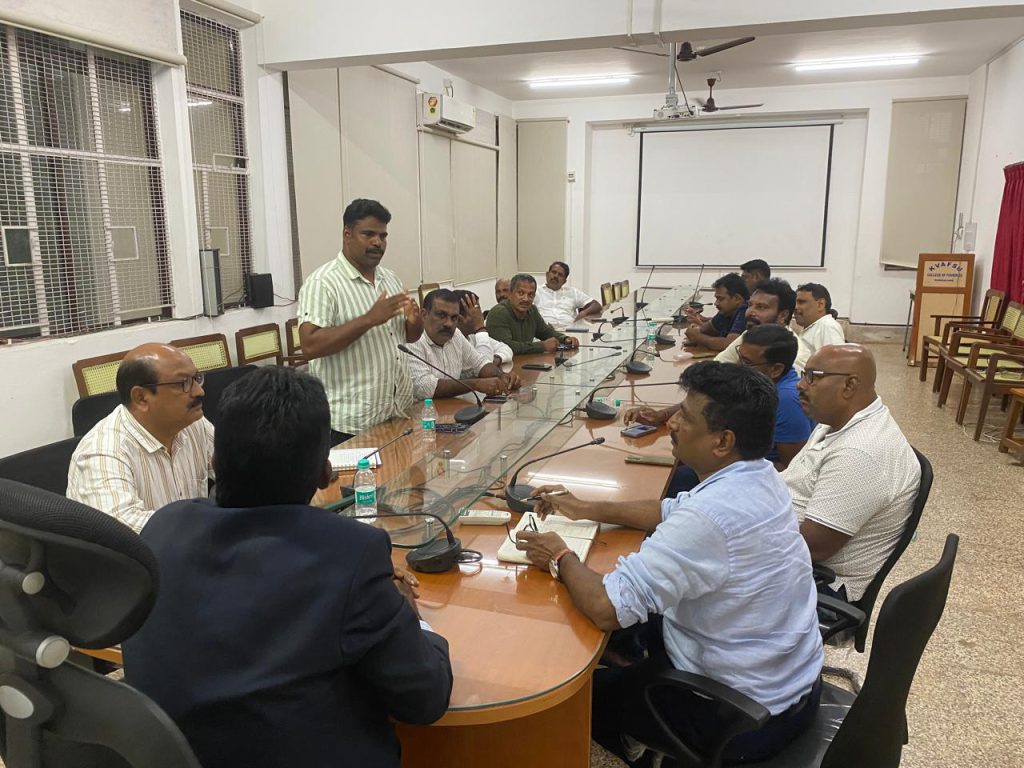Sea Equals MC² : A Revolutionary Initiative for Sustainable Fisheries Management as explained by Prof. Dr. Shivkumar Magada, Former Dean, Fisheries College, Mangalore.
NV Paulose, Chairman, Global TV +91 98441 82044

The Arabian Sea, a lifeline for millions, is a vast expanse of water and a dynamic ecosystem that sustains livelihoods, supports biodiversity, and serves as a cultural and economic backbone for coastal communities. Recognizing the urgent need to conserve this vital resource, a group of fisheries professionals and enthusiasts from Mangalore and across India have launched an innovative initiative, aptly named “Sea Equals MC².”
This is a visionary movement that combines cutting-edge science, community participation, and sustainable practices to protect the Arabian Sea while ensuring economic opportunities for those dependent on it. The goals and ground-breaking strategies at “Sea Equals MC²” are a game-changer in marine conservation.
The Challenges of Managing the Arabian Sea

The Arabian Sea spans 3.28 million square kilometres, bordered by seven countries, including India, and has supported over 200 million tons of fish catch in the past 50–60 years. However, overfishing, pollution, and fragmented governance now threaten this ecosystem.
Fisheries management in India is divided among five coastal states, each enforcing its own laws, resulting in inefficiencies and conflicts. Migratory fish stocks crossing state and national boundaries are particularly vulnerable, and fishermen often face penalties due to unclear maritime borders, despite advanced GPS technology. Marine fish catch in India has stagnated at 3.7–3.9 million tons over the past decade, emphasizing the need for unified, evidence-based management strategies across borders.
Sea Equals MC²: A Unified Approach to Fisheries Management

“Sea Equals MC²” addresses these challenges by fostering international collaboration. The initiative is aimed to engage scientists and stakeholders from bordering countries like Iran, Yemen, Oman, Somalia, the Maldives, Pakistan, and India to create a shared platform for harmonizing fisheries management strategies. By studying and understanding fish stocks and cultivating a sense of shared responsibility, the initiative seeks to ensure sustainable practices.
Key Strategies for Sustainability
- Stock Assessment Programs
Comprehensive stock assessments along India’s west coast aim to establish a scientific baseline for sustainable fishing practices.
- Harmonizing Fisheries Laws
Standardized regulations, such as uniform mesh sizes and extended fishing ban periods, are advocated to ensure consistent and sustainable practices.
- Banning Destructive Fishing Methods
Controversial techniques like bull trolling and light fishing are under review, with evidence-based decisions guiding their regulation.
- Building Collaborative Frameworks
The initiative coordinates with international stakeholders to establish management societies across countries bordering the Arabian Sea, respecting sovereignty while promoting collective action.
Crowd funding for Research and Innovation

Sea Equals MC² plans to construct a state-of-the-art research vessel through crowd funding. This floating laboratory will facilitate stock assessments, pollution monitoring, and on-board processing while fostering collaborations with colleges and research institutions.
The Concept Behind Sea Equals MC²
The name “Sea Equals MC²” symbolizes the initiative’s fusion of innovation and science. Standing for “Arabian Sea Fisheries Management Coordination Committee,” the acronym reflects a collaborative, multifaceted approach to marine conservation.
Objectives and Vision
Sea Equals MC² aims to:
- Conserve and Protect the Arabian Sea’s ecological health.
- Empower Coastal Communities through sustainable livelihoods and resource-sharing models.
- Mitigate Pollution via water quality analysis and education.
- Foster Awareness and Collaboration through a professional network for knowledge sharing.
- Innovative Features
- Participatory and Revenue-Based Model
- Blending non-profit and revenue-generating mechanisms ensures transparency and sustainability.
Crowd funding for a Research Vessel
The vessel, to be built at Cochin Shipyard, Udupi will support stock assessments, pollution monitoring, and research collaborations.
Automated Revenue Distribution
A transparent system allocates earnings to predefined categories, ensuring accountability.
Professional Network
Professionals contribute expertise in areas such as training, media, and consultancy, creating a collaborative ecosystem.
Activities and Impact
Sea Equals MC² envisions initiatives like stock assessments, alternative livelihood training, pollution management, and scientific research. Collaborative frameworks encourage inclusivity, allowing individuals and institutions to propose aligned projects.
A Vision for the Future
Sea Equals MC² seeks to:
- Protect the Arabian Sea’s biodiversity.
- Empower coastal communities with sustainable opportunities.
- Establish the Arabian Sea as a global benchmark for marine conservation.
Join the Movement
Sea Equals MC² invites fishermen, scientists, and enthusiasts to unite in conserving this vital ecosystem. With its innovative approach, the initiative is sure about making sustainability for celebrating and protecting the Arabian Sea for future generations.





